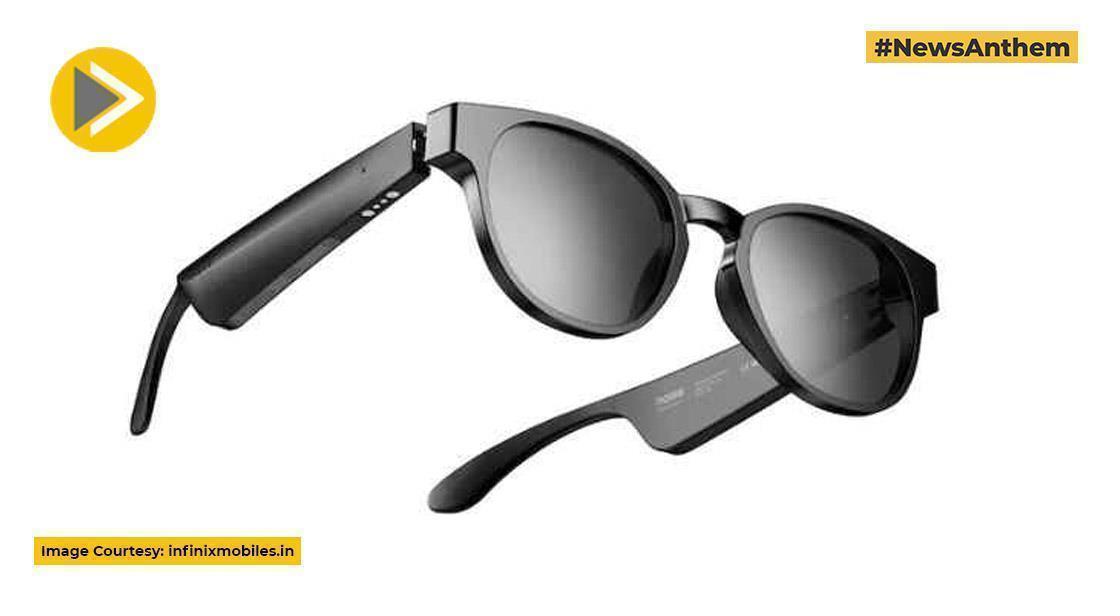Samsung May Launch AI-Powered Smart Glasses with Camera, Mic, and Speakers

News Synopsis
Samsung is once again making headlines in the wearable tech space, with reports hinting at a new pair of AI-powered smart glasses expected to arrive by the end of 2025. Unlike the company’s upcoming Android XR headset or Google’s advanced eyewear projects, this rumored device is said to be a separate venture. According to Korean outlet SEDaily, the design philosophy leans closer to Meta’s Ray-Ban Stories rather than a traditional augmented reality (AR) headset.
A Different Approach to Smart Glasses
Leaks suggest that Samsung’s upcoming smart glasses will feature a camera, microphone, and speakers, but they will notably lack a display. This means they won’t project virtual images or overlay information onto the real world. Instead, they are expected to focus on hands-free audio communication, discreet content capture, and AI-driven assistance.
This concept aligns more with AI wearables like Meta’s smart eyewear, designed for everyday use, rather than high-end XR headsets aimed at immersive experiences.
Rumors Resurface After Initial Delay
The idea of Samsung producing Meta-style smart glasses first emerged last year, with an initial late-2025 release window. While that timeline appears to have slipped, insiders now claim the project is gaining momentum again. The renewed development suggests that Samsung sees value in targeting consumers who want lightweight, stylish, and practical AI glasses without the complexity of AR displays.
Distinction from Samsung and Google’s XR Projects
It’s important to note that these screenless AI glasses are not the same as Samsung and Google’s collaborative Android XR glasses. The latter will reportedly include built-in displays capable of overlaying digital elements onto real-world surroundings, blending virtual and physical experiences.
Samsung also has another parallel initiative called Project Moohan, a VR-style Android XR headset designed to compete directly with Apple’s Vision Pro. This enclosed headset will deliver an immersive XR experience with Google’s Gemini AI powering its assistant features.
Expected Features and Functionality
Although detailed specifications remain under wraps, analysts believe Samsung’s screenless smart glasses could run on a lightweight version of Android XR. Possible features might include:
-
AI-powered assistance through Google Gemini integration.
-
Hands-free calling and messaging support.
-
Voice interaction for quick commands.
-
Live View mode via the onboard camera.
-
Audio feedback system, similar to Google Pixel Buds with Gemini.
Without a display, these glasses would likely emphasize communication and content capture rather than immersive visuals.
Competition in the Smart Glasses Market
The smart glasses market is beginning to heat up, with major players like Samsung, Google, Apple, and Xiaomi all working on their own wearable eyewear. Samsung’s dual strategy—offering one model focused on casual AI-driven usage and another targeting immersive XR experiences—could help the brand attract both mainstream consumers and tech enthusiasts.
This approach positions Samsung uniquely, ensuring it has offerings for both everyday lifestyle use and high-end mixed-reality applications.
Challenges and Uncertain Timeline
Despite the excitement, industry experts caution that timelines for smart glasses are often unpredictable. Development hurdles, hardware optimization, and integration of AI software may lead to further delays. The rumored late-2025 launch date should therefore be taken with caution, as the sector has seen multiple postponements in the past.
Pricing and exact specifications remain unknown, but insiders expect Samsung to reveal more information in early 2025, potentially teasing the product at one of its major global events.
Conclusion
Samsung’s rumored AI-powered smart glasses represent the company’s bold step into a new category of wearables. With no display but built-in AI capabilities, these glasses are designed to deliver a seamless blend of style and functionality, focusing on calls, content capture, and intelligent assistance.
If launched successfully, they could provide a more affordable and user-friendly alternative to display-heavy XR headsets while broadening Samsung’s wearable ecosystem. As competition in the smart glasses space intensifies, Samsung’s strategy to offer both AI-driven screenless glasses and immersive XR wearables could give it a strong edge in the evolving tech landscape.
You May Like









